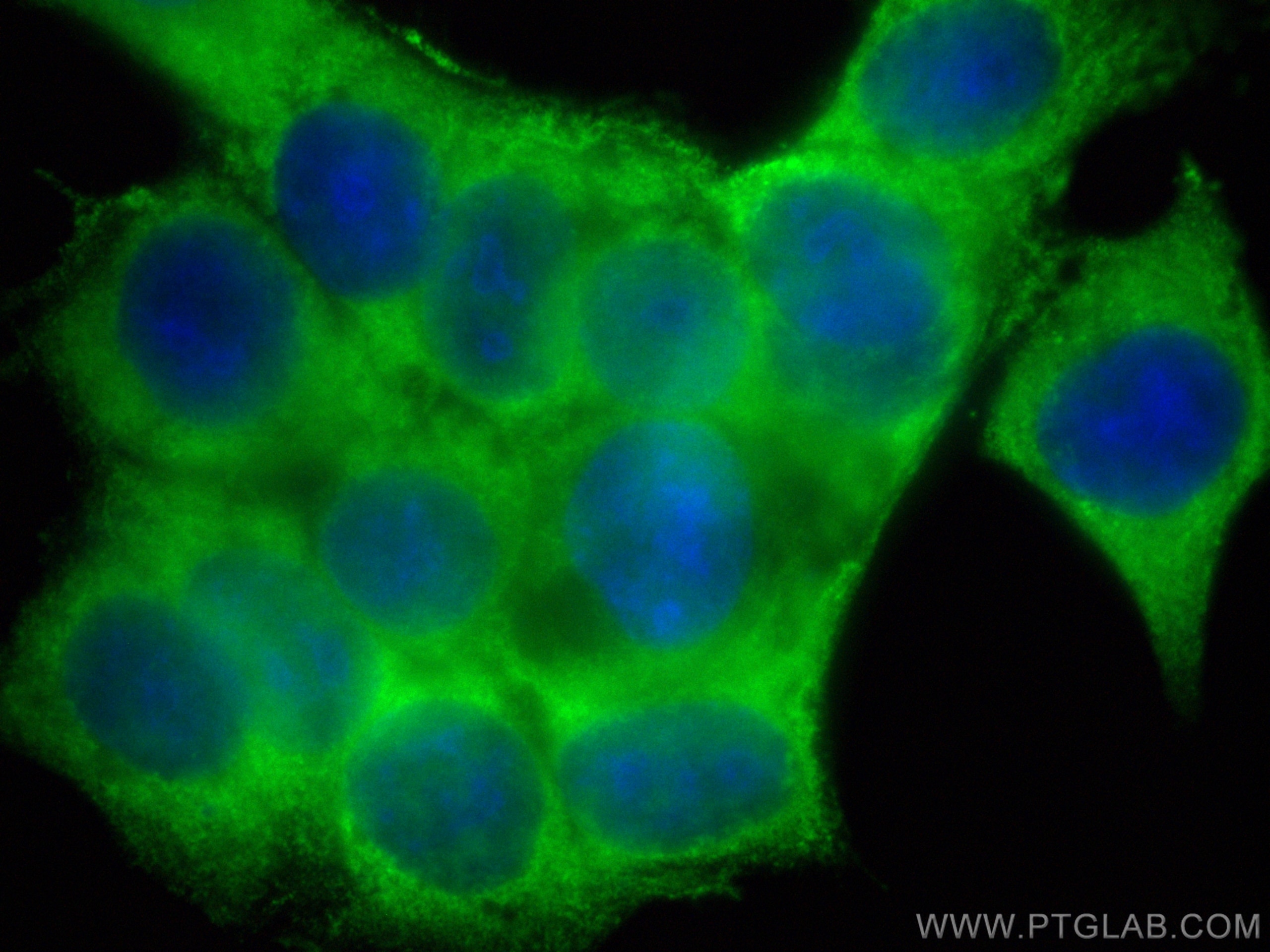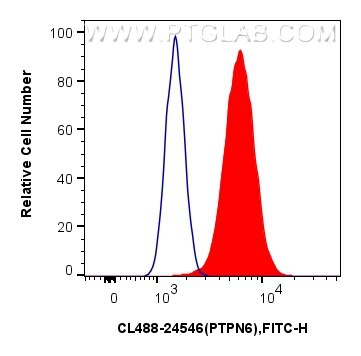- Featured Product
- KD/KO Validated
PTPN6 Polyklonaler Antikörper
PTPN6 Polyklonal Antikörper für IF/ICC, FC (Intra)
Wirt / Isotyp
Kaninchen / IgG
Getestete Reaktivität
human
Anwendung
IF/ICC, FC (Intra)
Konjugation
CoraLite® Plus 488 Fluorescent Dye
Kat-Nr. : CL488-24546
Synonyme
Geprüfte Anwendungen
| Erfolgreiche Detektion in IF/ICC | MCF-7-Zellen |
| Erfolgreiche Detektion in FC (Intra) | MCF-7-Zellen |
Empfohlene Verdünnung
| Anwendung | Verdünnung |
|---|---|
| Immunfluoreszenz (IF)/ICC | IF/ICC : 1:50-1:500 |
| Durchflusszytometrie (FC) (INTRA) | FC (INTRA) : 0.40 ug per 10^6 cells in a 100 µl suspension |
| It is recommended that this reagent should be titrated in each testing system to obtain optimal results. | |
| Sample-dependent, check data in validation data gallery | |
Produktinformation
CL488-24546 bindet in IF/ICC, FC (Intra) PTPN6 und zeigt Reaktivität mit human
| Getestete Reaktivität | human |
| Wirt / Isotyp | Kaninchen / IgG |
| Klonalität | Polyklonal |
| Typ | Antikörper |
| Immunogen | PTPN6 fusion protein Ag21415 |
| Vollständiger Name | protein tyrosine phosphatase, non-receptor type 6 |
| Berechnetes Molekulargewicht | 597 aa, 68 kDa |
| Beobachtetes Molekulargewicht | 63 kDa |
| GenBank-Zugangsnummer | BC002523 |
| Gene symbol | PTPN6 |
| Gene ID (NCBI) | 5777 |
| Konjugation | CoraLite® Plus 488 Fluorescent Dye |
| Excitation/Emission maxima wavelengths | 493 nm / 522 nm |
| Form | Liquid |
| Reinigungsmethode | Antigen-Affinitätsreinigung |
| Lagerungspuffer | PBS with 50% glycerol, 0.05% Proclin300, 0.5% BSA |
| Lagerungsbedingungen | Bei -20°C lagern. Vor Licht schützen. Nach dem Versand ein Jahr stabil. Aliquotieren ist bei -20oC Lagerung nicht notwendig. 20ul Größen enthalten 0,1% BSA. |
Hintergrundinformationen
PTPN6(Tyrosine-protein phosphatase non-receptor type 6) is also named as HCP, PTP1C and belongs to the protein-tyrosine phosphatase family. It regulates muscle INS action in a cell-autonomous manner, further suggesting that the PTPase negatively modulates INS action through down-regulation of both INS signaling to AKT1 and SLC2A4 translocation, as well as SLC2A4 expression(PMID:21952243). It has 4 isoforms produced by alternative splicing.
Protokolle
| PRODUKTSPEZIFISCHE PROTOKOLLE | |
|---|---|
| IF protocol for CL Plus 488 PTPN6 antibody CL488-24546 | Protokoll herunterladen |
| FC protocol for CL Plus 488 PTPN6 antibody CL488-24546 | Download protocol |
| STANDARD-PROTOKOLLE | |
|---|---|
| Klicken Sie hier, um unsere Standardprotokolle anzuzeigen |



